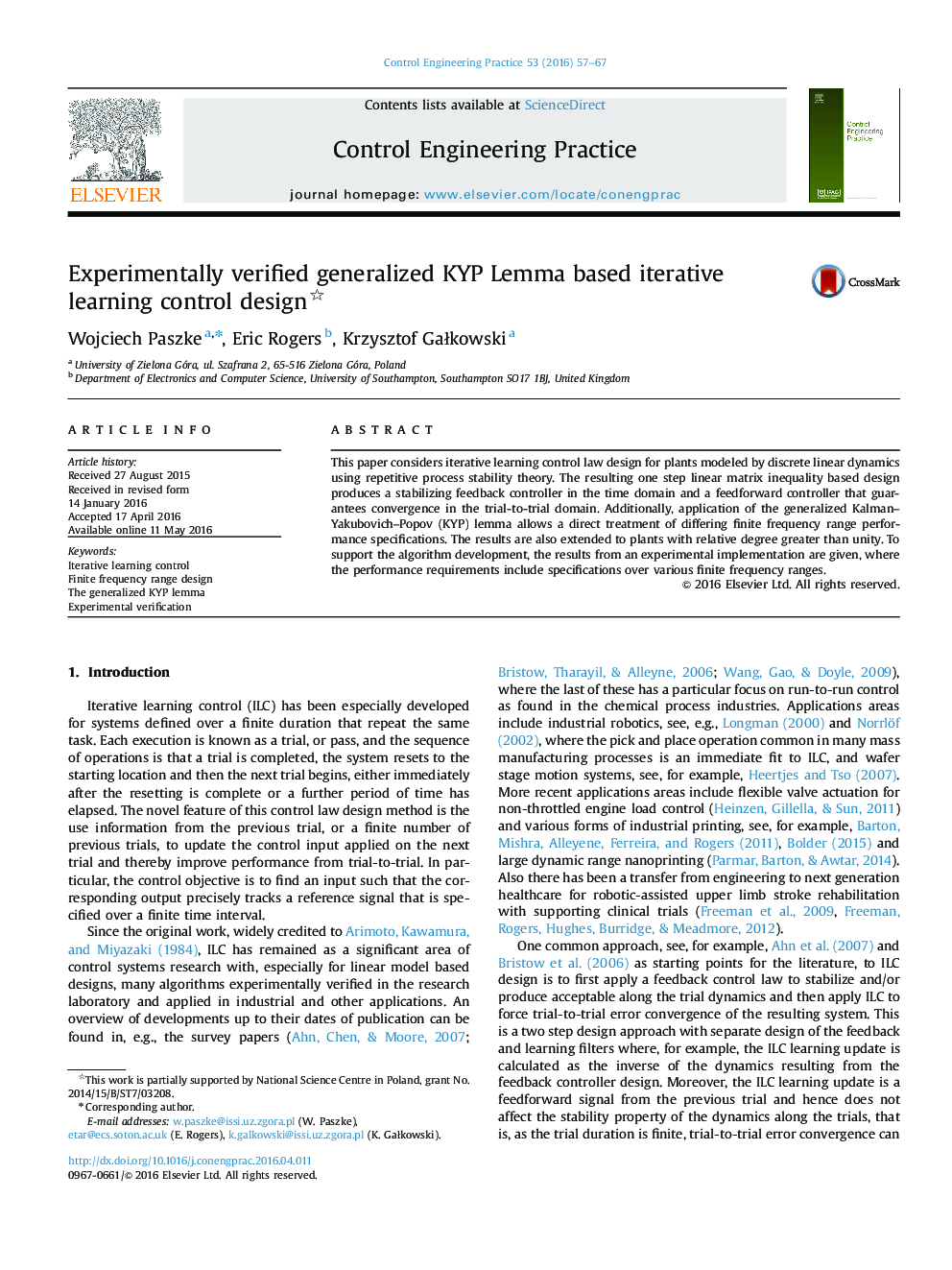| Article ID | Journal | Published Year | Pages | File Type |
|---|---|---|---|---|
| 699684 | Control Engineering Practice | 2016 | 11 Pages |
•Design with limited frequency range specifications is possible.•Repetitive process setting allows simultaneous treatment of the trial-to-trial error and transient response along the trials.•Design applies to systems of relative degree greater than unity.•Experimental validation of the results on a laboratory servomechanism system is given and discussed.
This paper considers iterative learning control law design for plants modeled by discrete linear dynamics using repetitive process stability theory. The resulting one step linear matrix inequality based design produces a stabilizing feedback controller in the time domain and a feedforward controller that guarantees convergence in the trial-to-trial domain. Additionally, application of the generalized Kalman–Yakubovich–Popov (KYP) lemma allows a direct treatment of differing finite frequency range performance specifications. The results are also extended to plants with relative degree greater than unity. To support the algorithm development, the results from an experimental implementation are given, where the performance requirements include specifications over various finite frequency ranges.
